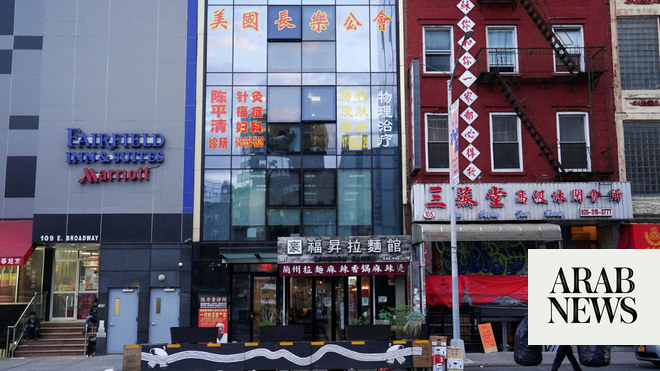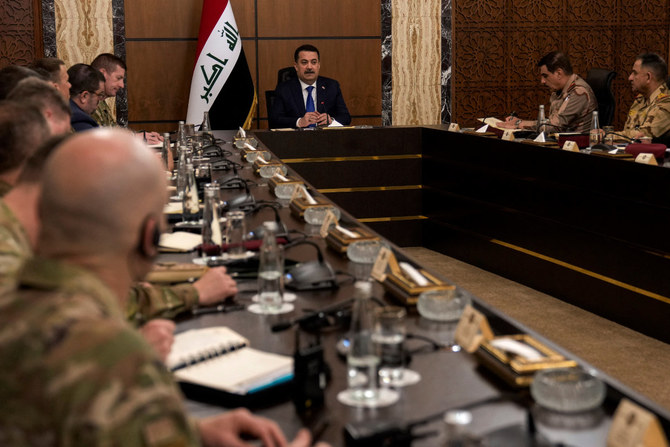
The Iranian regime has turned Syria into a proxy battleground as tensions between the US and Tehran increase in that theater. It is one of the major policies of Iran to turn other countries in the region into proxy battlegrounds in order to advance its political interests and hegemonic ambitions.
The US military last week carried out airstrikes in Syria’s Deir Ezzor province that targeted “infrastructure facilities used by groups affiliated with Iran’s Islamic Revolutionary Guard Corps,” according to a statement by Col. Joe Buccino, a spokesman for US Central Command. The order came directly from President Joe Biden, who “gave the direction for these strikes pursuant to his Article II authority to protect and defend US personnel by disrupting or deterring attacks by Iran-backed groups.”
Earlier this month, a drone attack hit a compound run by American troops and US-backed Syrian opposition fighters in the eastern part of Syria, near the borders with Jordan and Iraq. Maj. Gen. John Brennan, the commander of Combined Joint Task Force — Operation Inherent Resolve, pointed out that such attacks “put the lives of innocent Syrian civilians at risk and undermine the significant efforts by our Partner Forces to maintain the lasting defeat of (Daesh).”
Syria is a core pillar of the Iranian regime’s strategy in the Middle East. Some Iranian leaders even think of Syria as being part of Iran. For example, Mehdi Taeb, a confidant of Supreme Leader Ali Khamenei, once famously said that Syria is Iran’s “35th province… if we lose Syria, we won’t be able to hold Tehran.”
The Iranian regime appears to have penetrated every Syrian governmental organization, including its security and military infrastructures. Iran’s IRGC and its elite Quds Force, which carries out operations beyond Iran’s borders, are the key players. The regime also relies on its paramilitary groups and Shiite militia proxies.
While Iran’s hard-liners favor interventionist policies, there are no significant differences between Iranian political factions when it comes to the regime’s Syria policy, which is most likely directed by Khamenei personally, as well as by the senior cadre of the IRGC and the Quds Force. To more effectively infiltrate and control Syria, the Iranian regime has been building and opening schools and attempting to convert some Sunni mosques into Shiite ones in order to alter the country’s demographics in its favor.
The Iranian regime also uses Syria as a proxy battleground to score points against Israel. By exploiting instability in Syria, the IRGC and Quds Force enjoy a military presence close to the border of Israel. The IRGC has also established permanent military bases in Syria and has significant control over some of the country’s airports. From the Iranian leaders’ perspective, this helps tip the regional balance of power in their favor.
The Iranian regime has also gone further and set up factories that are involved in manufacturing advanced ballistic missiles and other weapons inside Syria. These include precision-guided missiles with the technology to strike specific targets. Iran’s foreign-based weapons factories give it an advantageous military capability for waging wars or striking other nations through third countries, such as Syria.
One of the most effective ways to reduce the Iranian regime’s influence in Syria is to cut the flow of funds to the government, the IRGC and Quds Force. The proposed nuclear deal will, instead, increase Tehran’s revenues. For example, in 2013 and 2014, the theocratic establishment was in a difficult situation financially due to the UN Security Council’s four rounds of sanctions. The pressure on Tehran was reflected in speeches by Khamenei, who anxiously called on Assad to control the situation in Syria. Unfortunately, the 2015 nuclear deal changed things. Billions of dollars poured into Iran’s treasury, providing significant relief. Financial and military support for Assad increased and Tehran later publicly acknowledged having forces on the ground in Syria.
The Iranian regime appears to have penetrated every Syrian governmental organization, including its security and military infrastructures.
Dr. Majid Rafizadeh
The new nuclear deal will not moderate the regional policy of the Iranian regime. Instead, the hard-liners — primarily the supreme leader and the leaders of the IRGC — will act to strengthen their monopoly over the political and economic systems. And the major beneficiaries of Iran’s improving economic status are going to be the gilded circle of Khamenei, the IRGC, the Quds Force, the Ministry of Intelligence, the Basij military force and Iran’s allies, including Bashar Assad in Syria and Tehran’s proxies across the region. In other words, the nuclear deal will mean that the Iranian regime will have more funds to invest in its military and its proxy groups and to further interfere in other countries’ domestic affairs.
The US administration needs to implement a comprehensive policy, including cutting the flow of funds to the IRGC, in order to effectively counter Iran’s destabilizing policy in Syria.
Dr. Majid Rafizadeh is a Harvard-educated Iranian-American political scientist. Twitter: @Dr_Rafizadeh
Disclaimer: Views expressed by writers in this section are their own and do not necessarily reflect Arab News" point of view












